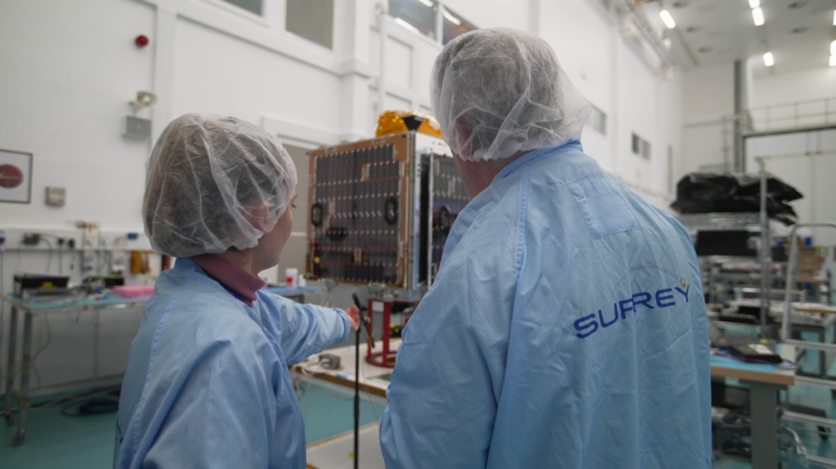A startup based in London named Satellite Vu launched a new satellite that is believed as the world's first thermometer in the sky to help tackle climate change's effects on the globe. HotSat-1 will have the resolution to see rooftops and walls while flying to measure heat output.

World's First Thermometer in the Sky
Satellite Vu launched HotSat-1 via SpaceX Falcon-9 rocket from Vandenberg Space Force Base in California, devised to have the resolution to measure heat output from any building on the planet. According to a report from Interesting Engineering, the world's first thermometer in the sky will help researchers study the effects of climate change in the world.
Chief Executive Officer Anthony Baker stated, "We're introducing the first thermometer in the sky. Satellite Vu is launching a constellation of eight satellites that can measure the heat output from any building on the planet." This flies at an altitude of 500km or 311 miles and will have the resolution to see individual rooftops and walls.
HotSat-1 comes with an infrared sensor, developed with funds from the United Kingdom and other European space agencies. Baker added that it is time to stop climate change instantly, hence, why they developed an instrument where researchers can measure the effects to direct people to the worst buildings or the worst leakage of energy or pollution in the sea.
UK's Net-Zero Ambition
The UK obtains some of the most inefficient housing stock in the continents, with the majority of dwellings constructed prior to 1970. Once these properties are retrofitted, not only it would save householders' fuel costs, but it will also help the country to achieve its ambition of becoming net zero by 2050.
While there is grant money to improve its insulation, the council and utilities will be in charge of the challenge of knowing where best to apply it. Satellite Vu can display the worst 20% of buildings quickly and can drive upgrades to the properties as HotSat-1 is equipped to identify structures and open spaces that aggravate the urban heat island effect, such as large car parks.
BBC reported that the Satellite Vu plans to fly eight satellites as a constellation of thermometers in the sky, making HotSat-1 the company's first. It has already pre-launch commitments from users who plan to use the thermal data in multiple ways, worth $125 million. This can be done within the United Kingdom and internationally.
Only last month when Satellite Vu raised $15.8 million to develop HotSat-1. Based on a report from TechCrunch, the funding round was led by Molten Ventures, with participation from Seraphim Space, Lockheed Martin, A/O Proptech, Earth Sciences Foundation, Ridgeline Ventures, and Stellar Ventures.
All of the mentioned investors already contributed to the company's previous projects. UK Space Agency's National Space Innovation Program also granted the company $1.2 million to develop the technology to gather high-definition thermal data directly from space.
Related Article : Global Warming Intensifies with Greenhouse Gas Emissions at 'All-time High' - Study Finds

ⓒ 2025 TECHTIMES.com All rights reserved. Do not reproduce without permission.




